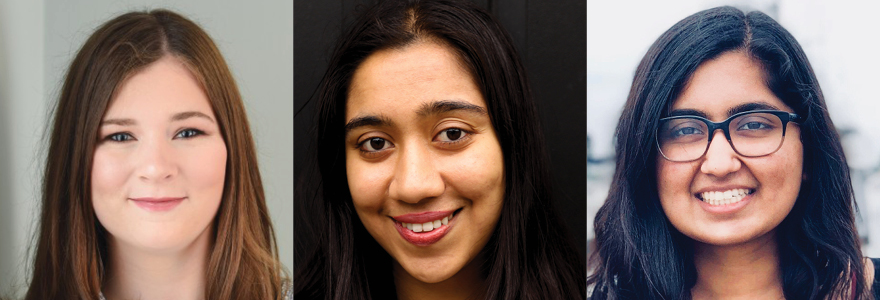Feature: Medical student-led conference critically examines decolonization
By Alexandra Burza, MMJC'19
Inspired by a decolonization conference she attended at Harvard University during her undergraduate degree, Divya Santhanam, Medicine Class of 2023, wanted to design a similar opportunity for Canadian medical students to examine the concept more closely.
Although she was studying health systems and policy at the time, Santhanam says the conference was her first exposure to the concept of decolonization, a term which describes the conscientious undoing of the impacts of and systems perpetuated by colonialism.
“I thought it was a deeply intriguing word, I had never thought about how one can un-colonize the field of global health,” Santhanam said. “But after the summer of 2020, the word decolonization began being used a lot more in discourse in a way it hadn’t before. So we started thinking about what would make our conference different.”
Thanks to a successful OMSA Innovator Grant application, support from the School’s Global Health Committee, and the recruitment of fellow medical students Amy Woolsey, Medicine Class of 2024 and Gopika Punchhi, Medicine Class of 2023, she was able to realize her vision.
Critically Examining Decolonization: The Field of Global Health was a virtual conference held in February 2021. While initially the goal was to bring together medical students in conversation, their event page quickly gained popularity on Twitter. The result was 300 geographically diverse participants from interdisciplinary backgrounds, including occupational therapists from South Africa, researchers from the United Kingdom and India, World Health Organization (WHO) representatives and the director of Médecins San Frontiers.
Hoping to build on existing conversations surrounding decolonization, the purpose of the event was to examine and discuss the use of the term, and whether its meaning had become diluted as it rose to popularity in Global Health circles, while also considering the Canadian context. The team was inspired by an article written on the topic by Dr. Madhukar Pai at McGill University, who was a mentor to the students in the planning stages.
“In Canada, we are settlers, and this has very real relevance to our lives, but it’s not something we think about on a daily basis, we don’t think about the fact we live on stolen land,” Punchhi explained.
“Including a panel on Indigenous decolonization specifically was important to us. We can point to the case of Joyce Echaquan in Quebec, who passed away as a result of direct medical racism. It illustrates the dire need for medical students to learn about settler colonialism; not from a checkbox or a module, but really thinking about the concepts.”
The conference began with a keynote presentation from Dr. Meleckizedeck Khayesi from the WHO, who spoke on utilizing tacit knowledge in national public health planning. The first panel of the day featured public health experts working in the Global South, discussing the role of multilateral organizations in dismantling colonial power.
The second panel, as well as the closing Q&A session, featured diverse speakers, including interdisciplinary researchers, an activist and a medical student with lived experiences of Indigeneity, giving space to perspectives not often formally included in medical education. Panel 2 focused on conversations about dismantling settler colonial states, featuring Drs. Richard Monture, Karen Hill and Samir Saheen Hussein, as well as Yotakahron Jonathon as panelists.
There was also an interactive workshop for Canadian medical students with Dr. Mallika Sharma, on how to identify and critique power and privilege in medical syllabi and in practice.
Although Santhanam, Punchhi and Woolsley went into the conference already well-informed on the subject matter, having carefully compiled pre-reading lists of relevant theory for attendees, as participants the conference offered plenty of new perspectives to consider.
“Some of the panellists spoke about how these conversations are inherently uncomfortable and unsettling. I think that was an objective of the conference, if we are willing to start talking about these things that are uncomfortable to settlers, but also do so in a safe environment, we are already taking a big step in the right direction. Discomfort is productive, and that was the case for the three of us in planning this conference,” Punchhi shared.
Woolsey agreed, adding that to be meaningful, dismantling colonialism must be an iterative process. “We can’t just rely on a few lectures about social determinants of health and move on, it needs to be something in the future, is really integrated into our curriculum, because it does influence health and every one of our patient interactions,” she said.
Building off the success of the conference, the team is looking to future opportunities, whether through writing, research or another event, to meaningfully progress the momentum it created.
“Decolonization is really complex, but the solutions ultimately come down to simply returning land, resources and power. It’s important to have these conversations, but it’s more important to do the groundwork,” Santhanam said.









